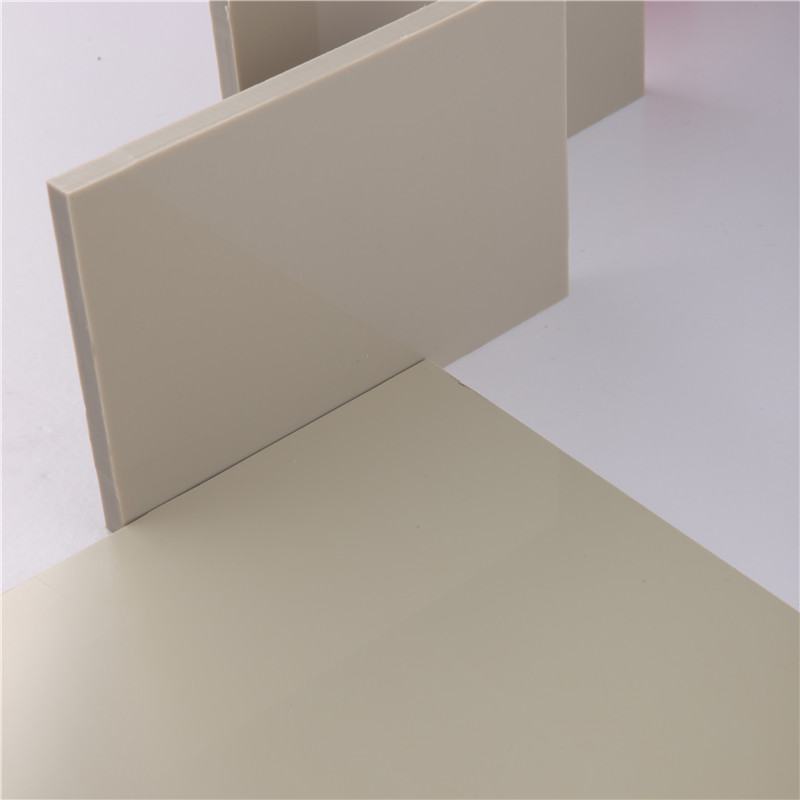Sep . 21, 2024 16:29 Back to list
pvc irrigation pipe
The Advantages of PVC Irrigation Pipes
In the realm of modern agriculture, effective irrigation is essential for crop growth and sustainability. Among various materials used for irrigation systems, PVC (Polyvinyl Chloride) pipes have emerged as a popular choice due to their numerous benefits. This article explores the advantages of PVC irrigation pipes, highlighting their efficiency, durability, and cost-effectiveness.
1. Durability and Longevity
One of the primary advantages of PVC irrigation pipes is their remarkable durability. Unlike traditional materials like metal or clay, PVC is resistant to rust, corrosion, and degradation from environmental factors. This means that PVC pipes can withstand extreme weather conditions and exposure to chemicals commonly found in agricultural practices, ensuring a longer lifespan. Farmers can enjoy the peace of mind that their irrigation systems won’t quickly wear out, reducing the frequency and cost of replacement.
2
. Lightweight and Easy to HandlePVC pipes are significantly lighter than their metal counterparts, making them easier to transport, handle, and install. This lightweight property translates to lower labor costs and faster installation times, allowing farmers to set up or repair irrigation systems more efficiently. The ease of handling also means that smaller crews can manage the installation without specialized equipment, which can be particularly beneficial in remote or rural areas.
3. Cost-Effectiveness
pvc irrigation pipe

When considering the overall costs involved in setting up an irrigation system, PVC pipes offer a more economical solution. The initial purchase cost of PVC pipes is generally lower than that of metal or other materials. Furthermore, their durability reduces the need for frequent replacements and maintenance. This affordability makes PVC pipes an attractive option for farmers, especially those operating on a tight budget.
4. Resistance to Roots and Blockage
One of the common problems faced with irrigation systems is the intrusion of plant roots into the pipes, leading to blockages and inefficiencies. PVC pipes have smooth interiors that discourage root penetration, helping to maintain a clear water flow. This feature is particularly beneficial in agricultural settings where roots of nearby plants might otherwise impede the irrigation process.
5. Adaptability and Versatility
PVC irrigation pipes are available in a variety of sizes and configurations, making them adaptable to diverse agricultural needs. Whether it's surface irrigation, drip irrigation, or sprinkler systems, PVC pipes can be customized to fit specific requirements. Their versatility allows farmers to design irrigation systems that cater precisely to the needs of their crops, ensuring optimal water distribution and reduced waste.
Conclusion
In conclusion, PVC irrigation pipes represent a reliable, durable, and cost-effective solution for modern irrigation systems. Their lightweight nature, resistance to environmental factors, and compatibility with various irrigation techniques make them a preferred choice among farmers seeking efficiency and sustainability in their operations. As agriculture continues to evolve, the adoption of PVC pipes is likely to increase, paving the way for more efficient water management practices that support both crop productivity and environmental stewardship. By investing in PVC irrigation systems, farmers can enhance their productivity while contributing to responsible resource management, ensuring a sustainable future for agriculture.
-
PP U-channel: Chemical-Resistant, Lightweight & Durable
NewsAug.10,2025
-
Transparent PVC Pipe: Clear Flexible Tubing for Fluids
NewsAug.09,2025
-
Durable PP Rigid Sheet: Versatile & High-Quality Plastic Panels
NewsAug.08,2025
-
Premium Glossy PP Rigid Sheet – Durable & Versatile
NewsAug.07,2025
-
High-Quality HDPE Sheet | Durable Plastic Panels
NewsAug.06,2025
-
High-Precision PVC Rigid Sheets for Vacuum Forming | AI-Optimized
NewsAug.05,2025

